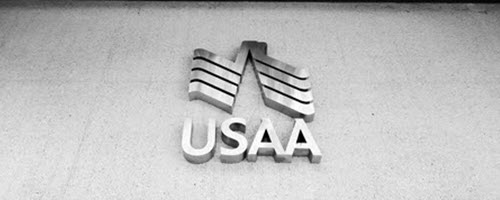|
|
|
|
|
|
|
|
|
|
|
|
Net-Zero Banking Alliance Suspends Activities After Wave of Departures
|
|
|
|
|
|
|
|
Today: Banks including JPMorgan, Citi and UBS have all left the NZBA as pressure from Republicans to quit climate alliances has mounted; investors call for farm businesses to address growing concerns about their water use; the Alaskan logging fight threatening Steinway’s iconic pianos.
|
|
|
|
|
|

|
|
Banks have faced ondemnation from Republicans over their ties to NZBA. Photo: Janice Chung/WSJ
|
|
|
|
|
|
Welcome back: A United Nations-backed alliance that called on banks to align their businesses with net-zero emissions has suspended activities, following the departure of numerous financial institutions from its ranks amid political pressure from the Trump administration.
The Net-Zero Banking Alliance said on Wednesday that it was pausing operations and was initiating a vote to decide on whether to continue working as a membership-based alliance or operate as a framework initiative, WSJ Pro Sustainable Business's Yusuf Khan reports.
The outcome of the vote will be shared at the end of September, it said. “Recognizing there is major opportunity for banks and key stakeholders to build on the Alliance’s outputs and to accelerate action on key priorities, NZBA encourages the banking sector to remain steadfast in implementing their net-zero commitments,” the alliance said.
More than 120 banks from 40 different countries have joined the NZBA since its inception in 2021, spurred by shareholders, governments and investors who believed that investing with climate in mind would secure long-term growth. However, amid strong pressure from the Trump administration and Republican attorneys general opposed to climate groups, many banks have since exited the organization.
|
|
|
|
|
Content from our sponsor: Deloitte
|

|
|
USAA CIO on Generative AI: ‘Relentless Learners Will Create the Future’
|
|
As generative AI reshapes business, USAA’s top tech leader focuses on helping talent adapt to new ways of operating—beginning with executive leadership. Read More
|
|
|
|
|
|
|
|
|
Punishing Droughts Put Fresh Pressure on Meat and Dairy Production
|
|
|
|

|
|
Drought is rife in California. Photo: David Paul Morris/Bloomberg News
|
|
|
|
|
|
Investors have an unexpected worry: access to water. Droughts have hit countries around the globe from Spain to Syria this year and parts of the U.S., including farm-heavy North Carolina. Worries about increasingly high temperatures have investors wondering how farming businesses are dealing with water shortages, WSJ Pro Sustainable Business's Clara Hudson writes.
Meat and dairy farms rely on water to hydrate their animals, grow crops to feed them and even to cool them off in extreme heat. Two-thirds of livestock companies surveyed by an investor group aren’t properly managing potential water shortages, “indicating widespread failure to manage water-related risks effectively,” according to a report out this week.
The report, by the Farm Animal Investment Risk and Return Initiative, a global investor network representing $80 trillion in assets, analyzed water risk for 60 large global meat, dairy and aquaculture companies.
Investors need to know how companies are planning to secure water in regions where droughts are rife, the report said. But 44 of the meat, dairy and aquaculture businesses surveyed didn’t provide any such data, with only 10 setting targets to reduce their exposure to water insecurity. Only one company disclosed where it gets its water from, according to the report.
|
|
|
|
|
“Just as big tech—and especially artificial intelligence—faces scrutiny over their water use, a handful of highly dependent agri-food companies hold outsized influence in building water resilience.”
|
|
— Henry Throp, research manager at FAIRR.
|
|
|
|
|
|
|
|
The Alaskan Logging Fight Threatening Steinway’s Iconic Pianos
|
|
|
|

|
|
Sitka spruce used in the construction of a piano at Steinway & Sons’ New York factory. Photo: Timothy Mulcare for WSJ
|
|
|
|
|
|
The decline of logging in Alaska’s Tongass National Forest is reverberating all the way to Astoria, Queens, where Steinway & Sons builds pianos in one of New York City’s oldest operating factories.
|
|
|
The WSJ's Ryan Dezember writes that Steinway credits slow-growing Sitka spruce from the islands of Southeast Alaska with giving its iconic pianos their sonorous, six-figure sound. The pianos’ ribs, braces, soundboards and white keys are all made from Sitka spruce. That supply is now in jeopardy. Steinway’s lone source of Sitka spruce says it is running out of wood because of a lack of logging in the Tongass, which covers most of Southeast Alaska.
|
|
|
|
In court filings, government lawyers contend that a 2016 forest-management plan doesn’t bind the Forest Service to offer specific quantities or types of timber for sale. But tribal groups, fishing interests and environmental groups oppose large-scale logging of old-growth forests.
|
|
|
|
|
|
|
|
|
|
|
|
|
|
|
|
-
Rio Tinto’s new CEO simplifies structure, names iron ore chief. (WSJ)
-
Aalo raises $100 million to build advanced nuclear plant and data center. (ESG Today)
-
Why Mars plans to more than triple the amount of renewable energy it buys. (Trellis)
-
The Colorado River is in trouble. Some groups want the government to step up. (AP)
-
EU auto groups press for change to 'no longer feasible' car CO2 emission targets. (Reuters)
-
The 100-ton rotating mass that can stop blackouts. (Bloomberg)
-
In a hotter world, some people age faster, researchers find. (NYT)
-
This map shows the hidden health threat of super-emitters. (Heatmap)
|
|
|
|
|
|
|
|
|
|
|
|
|
|
|
|